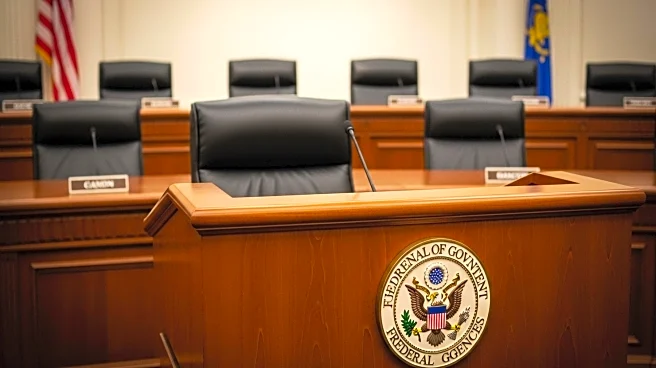What is the story about?
What's Happening?
Senior administration officials have detailed the effects of the ongoing government shutdown on various federal agencies during a Cabinet meeting. Energy Secretary Chris Wright warned that nuclear weapon modernization efforts could be stalled due to funding lapses. Agriculture Secretary Brooke Rollins emphasized the need to reopen the government to assist farmers affected by tariffs with China. Attorney General Pam Bondi highlighted that federal law enforcement officers are working without pay. The shutdown, which began on October 1, stems from a disagreement over including Affordable Care Act subsidies in a funding measure. Vice President JD Vance criticized Senate Democrats for risking funding for the WIC program, which aids low-income households. President Trump reiterated his intention to cut Democrat-favored programs during the funding lapse.
Why It's Important?
The government shutdown has significant implications for various sectors, including national security, agriculture, and public safety. The delay in nuclear weapon modernization could impact national defense capabilities. Farmers face financial strain due to unresolved trade issues, potentially affecting the agricultural economy. The lack of pay for law enforcement officers raises concerns about public safety and morale. The shutdown also highlights political tensions over healthcare funding, with potential consequences for low-income families relying on the WIC program. The administration's approach to using the shutdown to target specific programs reflects broader political strategies and priorities.
What's Next?
If the shutdown continues, federal agencies may face further operational challenges, and public services could be increasingly disrupted. The administration's plans to cut certain programs may lead to political backlash and negotiations in Congress. The resolution of the shutdown will depend on bipartisan efforts to address the healthcare funding dispute. Stakeholders, including farmers, law enforcement, and low-income families, will be closely monitoring developments and advocating for solutions to mitigate the impact.
















